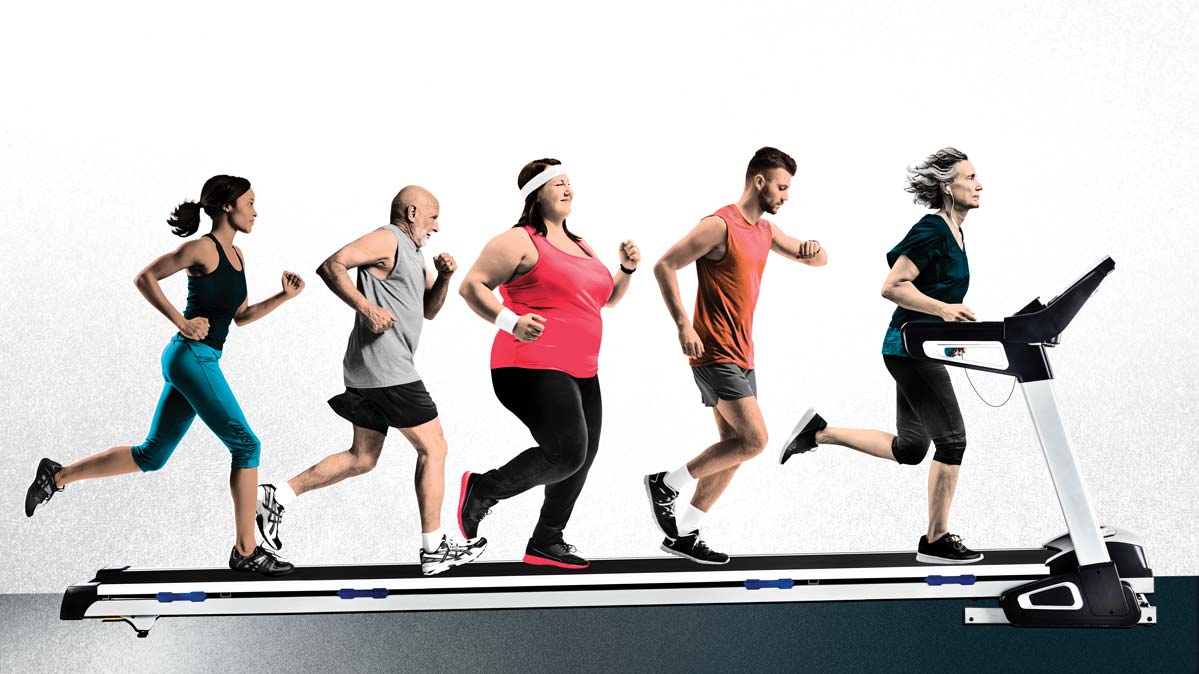
Let’s face it, after a week or two spent relaxing in front of Christmas telly with a box of Quality Street, few of us are feeling in our utmost physical condition at the moment – with weight loss predictably proving a buzz phrase for this January.
And, while it’s totally understandable if you want to drop a few pounds, or even simply feel a little less bloated or foggy-headed, putting it into practice can a little more difficult.
Part of this is the time of year, when it can be difficult to drown out the noise of fads and false advertising. After all, for every sensible decision to eat a bit less sugar, or get more active, there’s another marketing campaign telling us wellness lies at the bottom of a protein shaker bottle.
We may also simply lack confidence at the gym or with proper nutrition – especially when we are out of practice. That’s why we spoke to personal trainer Ben Goodman, who provided us with his top diet and fitness tips to start a healthy, sustainable lifestyle for 2019.
Nutrition
- Eat vegetables with every meal. “Make sure you eat a variety during the week,” says Ben. “Not only will this contribute to fibre, vitamin and mineral intake, but it will slow your eating down – vegetables typically take a lot of chewing – and make your meal look pretty.”
- Drink more water – tea, squash and fizzy drinks don’t count. “Use your urine as a guideline – it should be getting clearer through the day,” says Ben.
- Don’t eat before bed.
- Don’t buy anything labelled ‘detox’. Ben says: “It’s a waste of money. You’d be better off spending that money on a gym membership, personal trainer or nutritionist, and letting your kidneys and liver take care of the natural detoxification process.”
- Ditto, ditch the multivitamins. “Aim to eat lots of fruit vegetables instead.”
- Increase your protein intake. This will help you to feel fuller for longer.
- Don’t cut out any food group – focus on eating the right amount of calories, instead. “Calories in versus calories out is the determining factor here. If you’re eating more calories than you expend, you won’t lose fat.”
- Cook from scratch and cook in bulk. “Planning is key when it comes to eating,” says Ben. “Cooking from scratch using whole foods will normally guarantee a better, healthier meal, while cooking in bulk means you have a meal ready for the next few days.”
- Take protein powder, if you struggle to get enough in your diet – look for a variety which has at least 75% protein per serving, Ben advises.
- Be consistent. Eat at similar times every day, and don’t crash diet.
Exercise
Do core exercises at the end of your workout – for instance, a set of crunches.
Take it easy. This may seem counterintuitive, but it’s actually the key to sustained exercise programme rather than burning out after just a few sessions. Whether it’s running, or lifting weights, Ben recommends starting with a few weeks of low intensity. He says: “The phrase I want people to have in their head when they are walking out of the gym for the first 2-4 weeks is ‘I could do that whole workout again’.”
Add a little bit more weight to your work out every time. So if you lift 2kg weights one week, and begin to find them easy to use, then lift 3kg weight the next.
If you want to run faster, lifting weights twice a week will help to strengthen your legs in preparation – just remember to train your lower body.
Don’t go to the gym for more than an hour. As above, there’s no point tiring yourself out – unless you are running a marathon, it’s just not necessary, Ben explains.
Pick between six and eight exercises to do for your gym routine, including upper body (like bench presses or dumb bell curls) and lower body (think squats or lunges).
Alternatively, if you are exercising day after day, try to work different muscle groups each time, as muscles take between 24 and 72 hours to recover. Try doing upper body exercises one day, and all lower body the next.
Don’t do cardio if you don’t want to. “Lifting weights is enough to get your heart rate up.”
Ben recommends including the following exercises in your workout: squats (goblet or back squats), a vertical pull (like an assisted pull-up), and a horizontal push (bench press or chest press). Look these exercises up online, or ask a gym instructor for tips – remember they are there to help.





